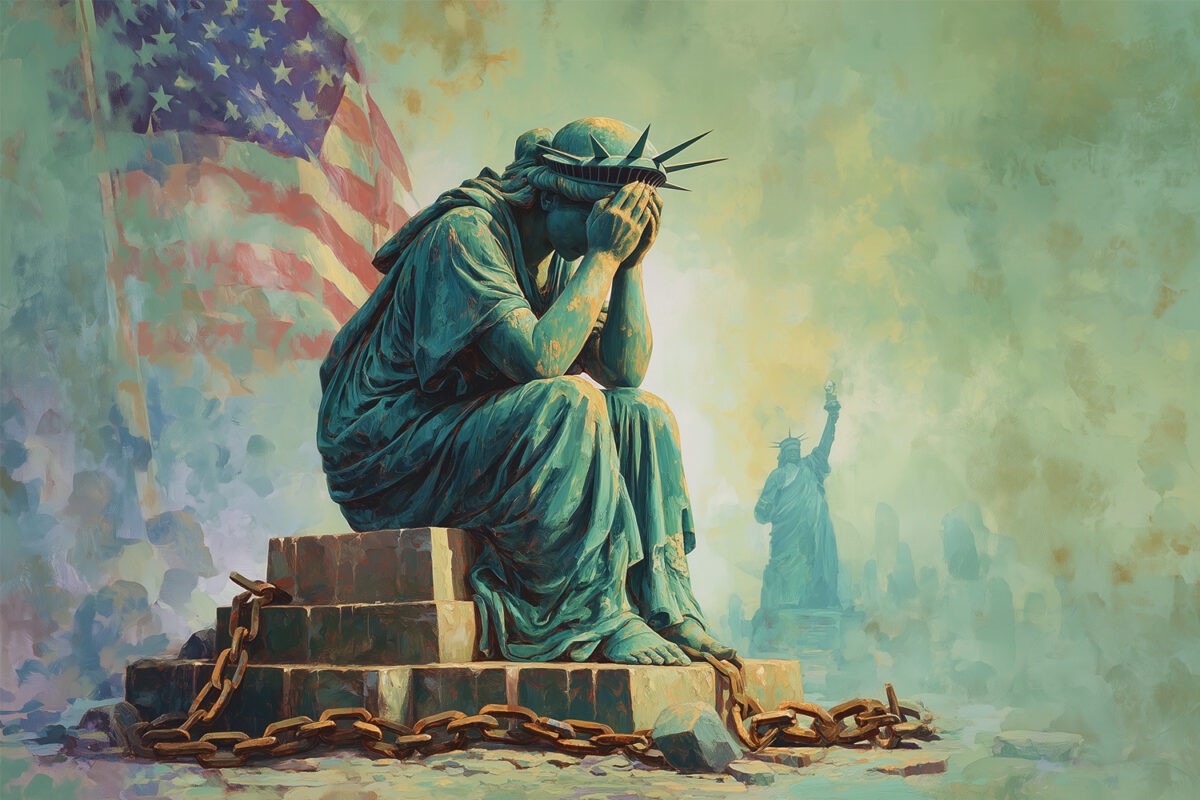Whilst the Muslim world experimented with socialism, democracy and nationalism in the past 100 years, the next 100 years will see the culmination of three trends that have been gaining speed for decades. These are the increasing unity between Muslims around the world on ‘Muslim’ issues, the failure of nationalism and the illegitimacy of the rulers
The Middle East and much of the wider Muslim world has been under virtual western occupation for over 100 years, whether it is direct colonisation or through lackey monarchies, autocrats and dictators. When the artificial borders were created in the Sykes-Picot Agreement 100 years ago in 1915-1916, new nationalities, or nationalism was hoped would give the region new identities to move forward with. Any deviation from this – the autocratic rulers would bring the people back in line. The assumption was Islamic governance had been undermined and the people of the region would embrace secularism when it came to governance and keep Islam to the mosque, marriages and personal morals. But Islam has not only made a comeback but has been gaining strength across the Muslim world. Going forward it looks likely Islam will play a bigger role in Muslim societies then the last 100 years.
A scrutiny of the created nations through the Sykes-Picot Agreement shows that they were artificial constructs with no coherent value system. Muslim societies at the turn of the 20th century were fractured on what values should be the basis of society. In some cases, one would have found some issues amongst the people being settled according to Islamic concepts; in other cases, they were settled upon liberal and even nationalistic ideas. In fact, many of the problems such as poverty, unemployment, development, male and female relations etc were even settled according to local customs and even tribal judgements. Hence, the nations that were artificially created couldn’t move forward (progress) since the Muslims were attempting to deal with societal problems in multiple ways rather than a single agreed upon basis, this is what resulted in the myriad of problems at the time. By not having a consistent reference point, the artificially created nations were disjointed and the various nations as a whole failed to move in a unified direction. Despite the colonial onslaught, Muslims did not adopt or embrace liberal values as a basis for their nations. One example of this is that despite the best efforts of the West in spreading its foreign culture, like the pursuit of individual freedom as a purpose for life in the Muslim lands we find that Muslims did not give up the social system of Islam. So, despite Islam not being completely clear in the minds of the people in the Middle East, the Muslims of the region did not abandon Islam as her identity.
Despite the Muslim world lacking the ability to extract pristine concepts from Islamic principles, the demand for Islam has only grown during the last 100 years. Turkey was the only country to renounce Islam completely in its constitution. Mustafa Kemal sought to destroy Islam in Turkey and he believed the Turkish people despised their Islamic heritage. However, after just a few decades, pressure on the regime mounted steadily and by the 1950’s successive Turkish governments started to play up Islamic sentiments in order to maintain their grip on power. By the 1970’s Turkey had its first sign of Islamic resurgence with the incorporation of Necmettin Erbakan in the cabinet. Erbakan like many of the Muslim rulers utilised Islam to gain support from the masses. In the 21st century, the people of Turkey have only voted for an ‘Islamic’ government. This is what led to then US Secretary of State Madeleine Albright to wring her hands about the ‘drift of Turkey away from secularism.’[1] Despite secularism dominating Turkish politics, for so long, the people of Turkey have been inclining towards Islam for decades — a far cry from the events post 1924.
The Turkish example is just one of many; Islamic influence in Algeria was so great in 1991 that the Islamic Salvation Front (FIS) managed to win a landslide victory in the country’s elections. It took the army, with French support to reverse this. Similarly, the people’s love of Islam in Afghanistan, Sudan and Somalia saw the establishment of governments under the pretext of Islam. For the last few decades Muslims across the world are reacting as one body to the onslaught against their brothers and sisters. Iraq, Afghanistan, Bosnia, Somalia, Palestine and Rohingya Muslim in Burma (Myanmar) have seen Muslims from across the world hold marches and rallies in solidarity with their brothers and sisters. In fact even the Muslims in Palestine, themselves under occupation, have regularly held rallies in support for other Muslims. Muslims feel revulsion when ‘freedom of expression’ is used to attack Islam, as can be seen with the attacks on the Prophet ﷺ of Islam via cartoon depictions in Europe.
The West dealt with this situation through supporting autocratic rulers in the region who used brutal methods of force and torture to subjugate the masses. But the widening gulf eventually gave way to the Arab Spring in 2011, which caused the overthrow of numerous long term dictators. The regimes today, which have always been the first line of defence for the West are weaker today and the masses are stronger, and hence the future of the Middle East in firmly underway.
Survey after survey has also shown the people of the region want Islam, something indigenous to the region, to play a central role in governance. The Pew Research Centre in Washington, 2013 survey found that support for Shari’ah as the official law of the land was well above 50%. Especially in Iraq 91%, and the Palestinian territories 89%. Only in Lebanon did opinion lean in the opposite direction at 29%.[2] Similarly a Gallup poll in 2006 titled ‘Islam and democracy’, gathered data from 10 predominantly Muslim countries and found in places such as Jordan and Egypt the demand for Shari’ah as a source of legislation was in the 80% range.[3] The Muslims in the region that constitute 97% of the population want to see their beliefs represented in the legislation and governance of their countries. For long the Muslim rulers played lip service to the demands of the people and by oppressing those that organised into groups to call for Islam. But with the fall of long term dictators such as Hosni Mubarak, this is no longer a sustainable policy.
Nationalism failed due to the artificial nature of the countries created for the Middle East. Its contradiction to Islamic unity also contributed to its failure. The Muslim rulers, as the West’s main instrument of defence, has been exposed and undermined as the masses saw them as diametrically opposite to how they viewed their future. Direct western invasion of the Middle East proved how desperate the situation became. Looking forward over the next 100 years the battle between the rulers alongside the West and the Muslim masses is set to only get intense as the Muslim masses want a future which is directly the opposite to the West and the Muslim rulers.
[1] Albright says U.S. not happy about Turkey’s Islamic drift, CNN, February 1997, retrieved 18 July 2015, http://edition.cnn.com/WORLD/9702/12/turkey/
[2] The Worlds Muslims, Religion, Politics and Society, Pew Forum on religion and public life, pew Research Centre, April 2013, http://www.pewforum.org/files/2013/04/worlds-muslims-religion-politics-society-full-report.pdf
[3] See, http://media.gallup.com/WorldPoll/PDF/GALLUPMUSLIMSTUDIESIslamandDemocracy030607.pdf





One comment
Hassan
3rd September 2022 at 6:58 pm
Exactly as i think.The inherent system needs to be uprooted before good/bad comes, and there is only one possible option but thats not public uprising as it creates anarchy and invites foreign powers.